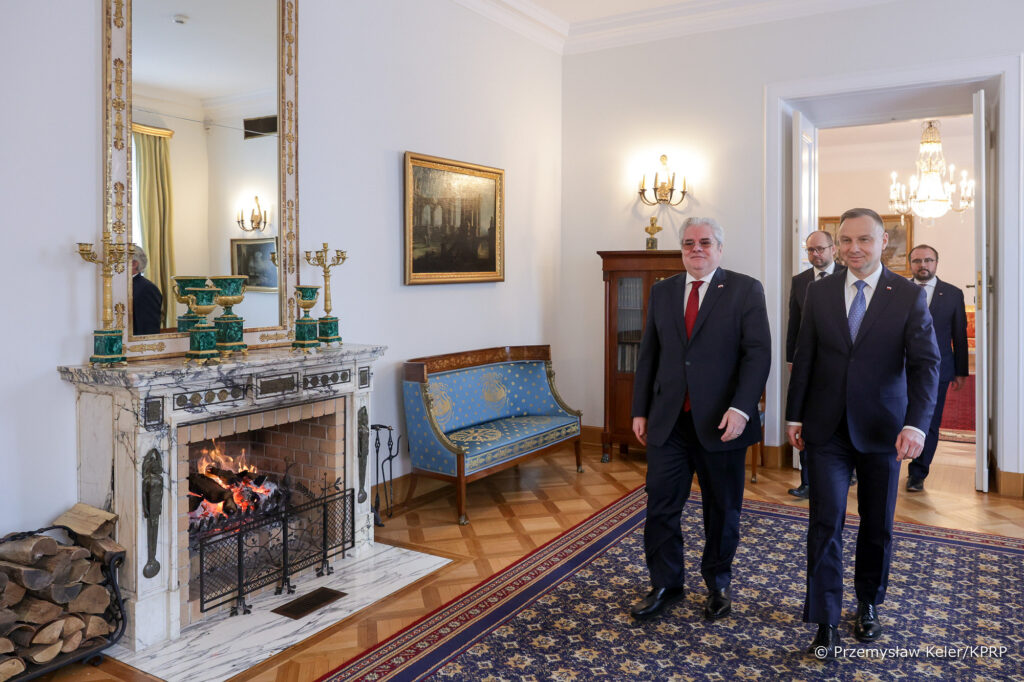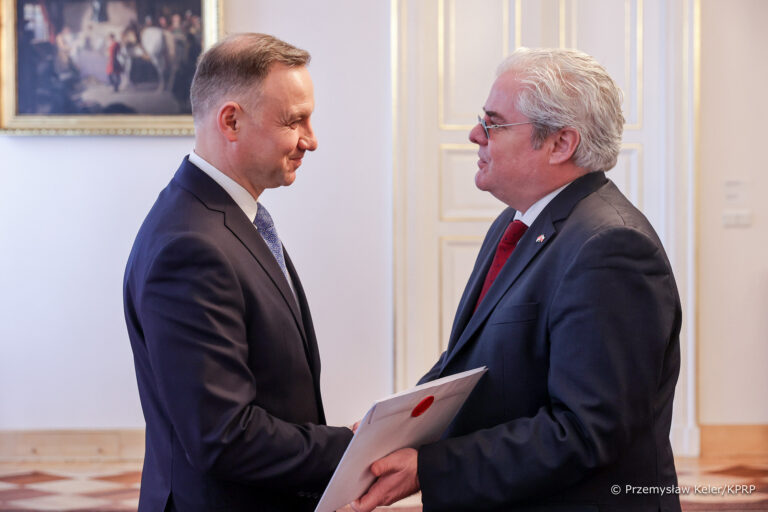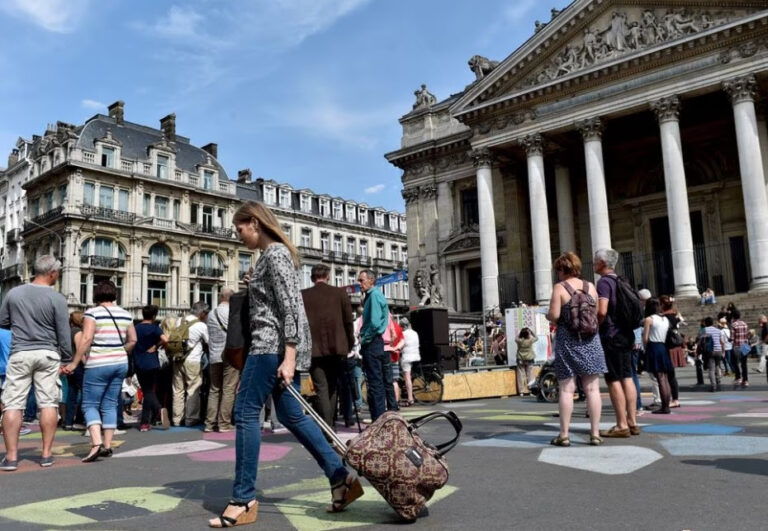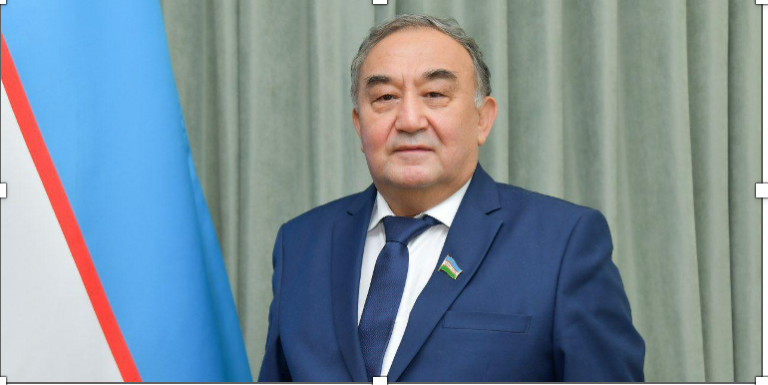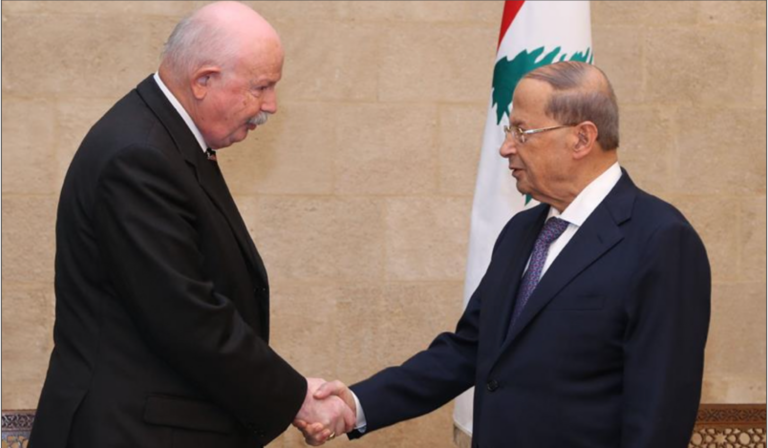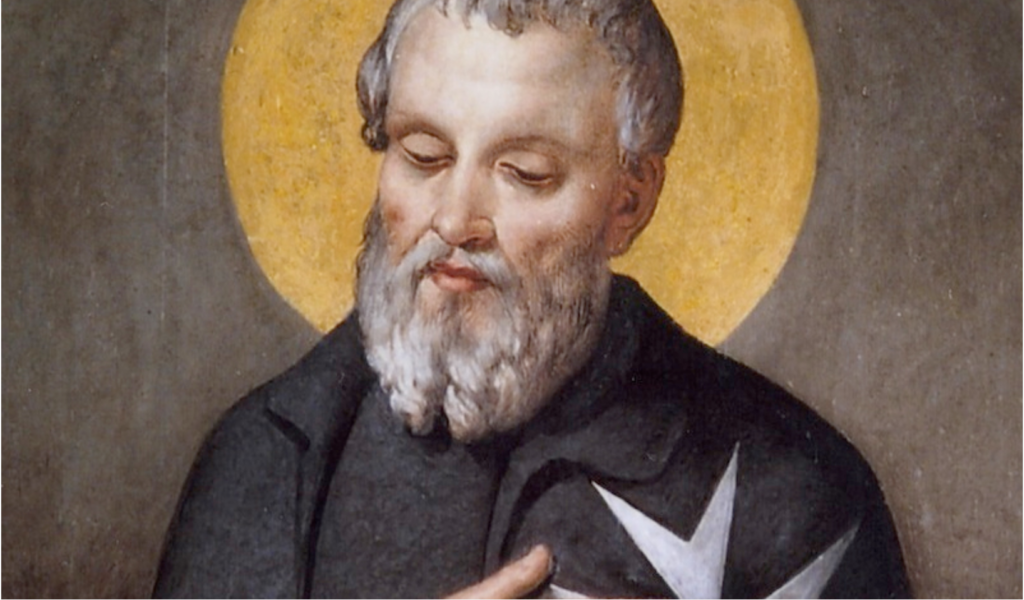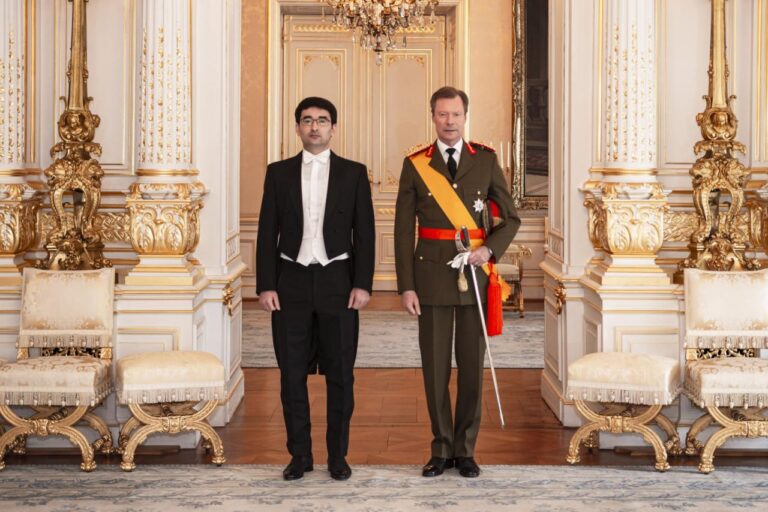Last year saw escalation of the Russia-Ukraine war. However, it is expected that the biggest crisis the world will face this year will arise in the Middle East.
According to the reports of the International Atomic Energy Agency (IAEA), at its Fordow nuclear site Iran je has enriched uranium to around 83.7 percent, which is 19 times higher than the 3.67% defined by the 2015 Agreement. If it transpires that the contents of the report is correct, bearing in mind that Iran has sufficient quantities of uranium enriched to 83.7% and is in possession of advanced centrifuges for production of fusion material required for development of a bomb, the question to be asked is in how many days or weeks at most will Iran become a member of the nuclear club. This would be an unprecedented scenario in the history of the Iranian nuclear program, which commenced in 1950 with the assistance of the US, and would mean crossing of all red lines with respect to the Iranian nuclear program. In fact, some subject matter experts believe that the achieved percentage of uranium enrichment is sufficient for development of an atomic bomb, bearing in mind that the atomic bomb thrown on the Japanese town of Hiroshima in 1945 was made of uranium with enrichment level of around 84%.
In the past two years revival of the nuclear agreement from 2015 was expected. US President Donald Trump unilaterally withdrew the US from the agreement in 2018. The fact is that after nine rounds of direct negotiations between Iran and the “4+1” (France, United Kingdom, Russia, China and Germany) group and the indirect talks with the United States in Vienna, no progress was achieved from April 2021 to April 2022. An agreement was brokered in September 2022, when Josep Borrell, High Representative of the Union for Foreign Affairs and Security Policy, presented a comprehensive document for achievement of an agreement. Washington accepted it, while Tehran stalled and presented preconditions for acceptance of the agreement, requesting from Washington to lift the sanctions against the Iran’s Revolutionary Guard and suspend all other sanctions as well.
Iran’s goals of escalation
Iran is aspiring to achieve several goals with the latest Iranian nuclear escalation, most important of which are the following:
● Opposing Western pressures after the classified report of the International Atomic Energy Agency (IAEA) was publicized in early February 2023, revealing the fundamental modification of the connection between the two series of centrifuges for enrichment of uranium to 60% at the Fordow site, without notifying the IAEA. This indicates that Teheran is insisting on escalation, particularly at the time when it is under increasing pressure and sanctions of the West. The latest of these suctions was imposed by the EU Council of Ministers on 20 February 2023. The sanctions were introduced against 32 individuals, including two ministers, and two entities responsible for the violent crackdown of the recent protests in Iran. The latest sanctions were the fifth package of sanctions imposed by the EU against Iran.
● Response to Israeli threats: Tehran uses its nuclear escalation to respond to Israeli threats against the country, like in the case that occurred several days after the attack on the military facility of the Iranian Ministry of Defense in Isfahan in late January 2023. Iran officially accused Israel for the attack.
An Iranian attack on an Israeli vessel in the Arab Sea followed. The Israeli Prime Minister Benjamin Netanyahu accused Iran for the incident. On 19 February 2023, Israel bombed military facilities belonging to Iranian-backed militia in the Syrian capital of Damascus.
● Initiation of nuclear talks: As a result of nuclear escalation Tehran aims to initiate nuclear talks with the West, which have been at a standstill since September 2022. Iran is making indications that it wants revival of the nuclear agreement, underlining that it had exchanged messages with Washington through mediators (Qatar and Iraq).
In parallel, Iran wants to calm down the fears of the West, particularly after the visit of the IAEA Director General Rafael Grossi to Tehran in early March 2023. Namely, Iran is aware that nuclear escalation could trigger adoption of decisions by the IAEA Board of Governors, which will meet in March 2023. If it is proven that Iran has enriched uranium to such a high percentage and a respective decision is adopted, the UN Security Council could reintroduce UN sanctions, which were lifted in 2015.
Tehran will probably pursue two courses of action. The first course of action will be escalation through increasing pressure- nuclear or missile. The second course of action will be to pacify the fears of the West by calling for continuation of the suspended talks in Vienna.
American role in the Russian-Iranian relations
Following the dissolution of the Soviet Union, Washington aspired to obstruct any cooperation between Moscow and Tehran. In fact, in 1995 it brokered with the Russian side the “Gore – Chernomyrdin” agreement, which envisaged an obligation of Russia to prevent export of weapons and defense systems to Tehran, in exchange for getting US concessions and economic aid. This was not sufficient for Washington, which deliberately revealed the classified provisions of the Agreement in 2000 in order to block what then seemed as progress in Russia-Iran bilateral relations. Cooperation between Russia and Iran took a new turn in 2006 with limited cooperation in the energy sector, as a part of the Russian response to deployment of a large number of US missile systems in Eastern Europe and its efforts to persuade Ukraine and Georgia to join NATO. It is important to note that intensive cooperation between Russian and Iran started only after the introduction of sanctions against Iran in 2010.
Relations between Moscow and Teheran particularly improved in 2011, in light of their common understanding of developments in Iraq, Afghanistan and the disputed Nagorno-Karabakh region between Armenia and Azerbaijan. Therefore, 2011 is considered as the beginning of the “Russian-Iranian spring” and fostering of their strategic partnership, which lead to the signing of the nuclear agreement with Iran in 2014 on construction of eight new nuclear reactors. In such a way, Moscow forced Washington to turn a blind eye to the Russian annexation of Crimea in the same year.
The strategic partnership of Moscow and Tehran evolved into a strategic alliance, and one of its signs include the supply of Moscow with drones and the agreement of their production in Russia. Negotiations regarding Iranian procurement of modern Russian Su-35 aircrafts have been concluded, while the negotiations in relation to the S-400 missile systems are well advanced.
The maximum pressure policy pursued by former US President Donald Trump against Iran and the withdrawal of the US from the nuclear agreement created a window for Iran to develop even closer relations with Russia. Teheran swiftly fostered its relations with Moscow, considering it as a very important strategic partner and an irreplaceable source for procurement of weapons and military weapons, as well as a path to circumvent numerous US sanctions. For that reason, since the beginning of the Russia-Ukraine war in 2022, Iran extended its full support to the Russian side. Iranian President Ebrahim Raisi stated that his country understands the concerns of Russia regarding its security, as a result of NATO actions in Eastern Europe.
Russian fear of revival of nuclear agreement is even bigger, as for Moscow it would mean loss of the “Iranian sanctions”- element, which has been of multiple interest to Russia. Specifically, the constant Iran’s need for Russian technology for the oil industry, the coordinated bilateral policy against Washington, etc. Russia does not fear a “nuclear Iran” as much as it fears an “Iran in an alliance with the West,” which the West could use as a Western tool to weaken Russia and gain control over Central Asia.
In March 2022, Russia obstructed conclusion of a final agreement with Iran in Vienna. Namely, Russia requested from the United States written guarantees that economic relations between Moscow and Teheran would not be subject to sanctions that the West had introduced against Russia because of its intervention in Ukraine. The Russian request was undoubtedly not to the liking of Tehran because it wanted to broker an agreement, but at the same time did not want to impair its relations with Russia, which supported it and was its partner at its most difficult times. Specifically, when Tehran was under the US sanctions over the past decades.
Israel’s response
The question to be asked is how Washington and Tel Aviv would act and what would be their options for a military response.
Israel persistently repeats that it will not “accept” a nuclear Iran and increasingly often speaks about the need to attack Iran before it is too late. It is evident that the US administration headed by President Joseph Biden is not trying to rein in Israel in relation to an attack on Iran. Israel and the United States recently conducted unprecedented joint military exercises, which are broadly believed to be a simulation of execution of an attack on Iran. Furthermore, intensive military consultations between US and Israel create an impression of increased readiness for such a conflict. Such an approach is in striking contradiction to the approach from the time of former US Presidents George W. Bush and Barack Obama, who actively tried to block any Israeli military action that could draw Washington into yet another direct regional confrontation. European countries which have long played an active role in pacifying the relations between Israel and Iran, currently predominantly have no specific stance on the issue because they are excessively occupied with Ukraine.
Tactical US-Israel strikes could delay the Iranian nuclear program. However, it is uncertain how much they would influence destruction of the program, bearing in mind that Iran had constructed its nuclear plants deeply underground and at different locations. Military attacks would definitely spark a strategic debate within Iran regarding active nuclear weapons, which would bolster the position of the hardline elements of the Islamic Revolutionary Guard Corps Guard (IRGC) in Iran, who see Pakistan as the best model to follow and thus autonomously ensure military control of the country.
This hardline faction believes that despite the short-term price that Pakistan had paid for its nuclear program, procurement of nuclear weapons has ultimately ensured a balance with its nuclear rival India. Individuals in the Iranian leadership believe that Teheran has already paid the political and economic price of existence of a full nuclear weapons program and now has to continue and arm itself. Israeli-US military strikes would probably speed-up Iran’s advancement towards intensive arming with nuclear weapons.
Indirect effects of strikes against Iran would probably be equally disastrous. Military strikes that Israel could launch against Iran would trigger Iran’s response. Apparently, Iran could start its retaliation measures through its allies in Syria and Lebanon- and they would be aim at the neighboring Israel. Teheran could also continue with direct attacks on key shipping-routes and oil plants in the countries of the Gulf Cooperation Council (GCC), in an attempt to disrupt the global route used for the Gulf oil, which amounts to 20% of the global daily production. This would be a major blow to the global economy, particularly because of the war in Ukraine. In fact, suction actions and responses could also destroy the fragile peace in Iraq and end the ceasefire in Yemen, which could then lead to attacks by the Huti movement on the Saudi oil plants, as in 2019 when drone attacks on Abqaiq–Khurais halved the oil production from ten to 5 million barrels per day.
EU policy towards Iran
A military conflict with Iran would be a disaster and should be avoided before it is too late. A war would have horrible and counterproductive consequences for the West, Israel, Iran’s neighbors, as well as the Iranian people. European pressure to have the IRGC proclaimed a terrorist organization would be an unprecedented action of the EU against a national entity, just like the recent decision of Germany, to exclude Iranian officials from the Munich security conference and extend invitations to Iranian dissidents in exile instead.
Regardless of the internal turmoil in Iran and the violent breakdown of democratic protests, European governments, and particularly the German government should engage in efforts to prevent a broader regional war, which the current nuclear situation could spark. Washington often cooperates with adversaries, despite their brutal internal policies – Egypt, Saudi Arabia, North Korea, China etc. – in situations when global security is at stake.
German politicians have to abide by diplomatic norms and standards, as well as work on lowering the tensions- not raising them in the existing complex international circumstances. Namely, during her visits to Iraq on 7 March 2023 German Minister of Foreign Affairs Annalena Baerbock stated in Baghdad that Iran was endangering “stability” in the Middle East. “The Iranian regime shows with its missile attacks that it not only represses its own population with recklessness and brutality, but is apparently prepared to jeopardize lives and stability in the entire region to maintain power.”
Iran condemned the statements by the German Minister, described them as anti-Iranian and reminded of the role of Germany in the Iran-Iraq war from 1980 to 1988. “Such baseless claims are aimed to cover up the scandalous crime of arming the Iraqi regime with chemical weapons, which was used against military troops and citizens of Iraq and Iran.”
The German Minister of Foreign Affairs apparently had forgotten the cross-border military operations of Turkey against terrorist groups in Syria and Iraq, and Israel’s in Syria and Lebanon.
US lacks effective diplomatic options
Iran has become more radical in its stances and is rather unlikely to return to the same nuclear agreement, unless it gets some additional concessions. On the other side, it is also rather unlikely that President Biden would accept a “weaker” agreement from the US point of view, than the original one. Therefore the possibility of achievement of a diplomatic solution is significantly reduced.
President Biden is aware that the nuclear agreement “is dead, but we are not going to announce it”, as such an announcement would open the door to a more difficult questions of what could happen next. As the last thing that Biden wants is a new US war in the Middle East, it is still plausible that launching of US strikes against Iranian nuclear plans would be the last resort. The most likely option is that the US and Israel will increase pressure on Iran without resorting to a war and in a way that will guarantee deceleration of the Iranian nuclear program. There are many other options as well, including cyber-attacks or covert sabotage operations against the Iranian nuclear program, execution of limited military attacks, stronger US sanctions against Iran, etc.
How to deal with nuclear Iran?
Today we have to reckon with a nuclear Iran. Is coexistence with it at the regional and international level possible? If not, what are the options to address that issue? Would it be possible to launch an Israel-US attack to paralyze the nuclear program? What consequences and results could stem from Iran’s response to such an attack?
Former US State Secretary Henry Kissinger said Iran has to choose will it be a nation or pursue a revolutionary cause. Iran, as a nation, decided to engage in negotiations about its nuclear program not to reach a solution, but to pursue its revolutionary goals- which is possession of nuclear weapons. If the negotiations fail, the logic of the revolutionary cause emerges and the right to possess nuclear weapons or, in the worst case scenario, achieve the nuclear threshold to join the nuclear club.
An important question can be raised here: why some regional powers- such as India and Pakistan- can have nuclear weapons, and Iran cannot have that right? It could be said that the fundamental difference between Iran and the mentioned powers is that Iran aligns its regional project with its nuclear weapons, which means it has political projects of expansion, framed in religious and ideological formulations. (In example, the government in Baghdad, Syrian regime, Hezbollah u Lebanon, Hamas and Islamic jihad in Palestine, and the Houthi movement in Yemen, etc.)
All the considerations should focus on analysis of the dangerous phase that the region, and maybe even the world, would face if the situation reaches the point of launch of military attacks against the Iranian nuclear program.
Finally, some food for thought – What if Iran becomes a nuclear power? Will it become more responsible in international relations than it has been so far?
Published by IFIMES – The International Institute for Middle East and Balkan Studies (IFIMES) from Ljubljana, Slovenia, 22 March 202
